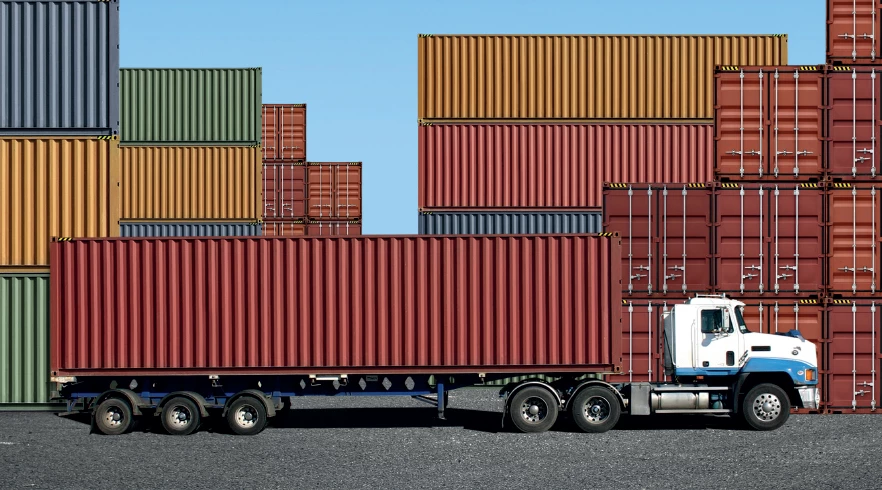Vietnam has become one of the world’s fastest-growing economies, with annual GDP growth averaging 5 to 8% over the last few decades. These impressive numbers are largely related to the country’s success in manufacturing and trading, which has lifted millions of people out of poverty.
The trucking industry has played a crucial role in the country’s economic transformation, and currently moves 77% of the total freight-ton volume. Although in 2018, Vietnam jumped from 64th to rank 39th in the World Bank’s Logistics Performance Index—many challenges persist.
At 21% of GDP, logistics costs are a serious pain point that has been stifling the competitiveness of Vietnam’s exports.
The environmental impact of the sector represents another important concern. The Vietnamese fleet comprises mostly small and older trucks, with a significant impact on greenhouse gas (GHG) emissions and traffic congestion. Overall, the transport sector accounts for about 10% of GHG emissions in the country.
To address these issues, our team conducted the first-ever comprehensive study of Vietnam’s trucking sector, which drew on a nationwide survey of more than 1,400 truck drivers, interviews with 150 private and public stakeholders, and a detailed review of the key factors influencing logistics costs and emissions. The results of our analysis and associated policy recommendations have been compiled in a new report: Strengthening Vietnam’s Trucking Sector- Towards Lower Logistics Costs and Greenhouse Gas Emissions. The report identified 14 possible policy interventions along four dimensions, summarized below. While our work focuses on Vietnam, the study draws on international examples as well, and could certainly help other countries modernize their trucking industry.
1. Improving trucking companies, vehicle fleets, and driving practices
About 95% of trucks in Vietnam are older than 5 years, with 31% being older than 8 years. Most trucking companies are extremely small, with an average fleet size of only 5 trucks. Many also struggle to find experienced and well-trained drivers. Our report suggests policies that could help at the company, fleet and driver levels:
- Encouraging trucking companies to modernize their fleet through incentive mechanisms
- Introducing variable road charges based on truck age
- Strengthening driver training and licensing; this could include, for example, modules on healthy driving habits and refresher courses to keep up with technology
- Fostering fleet improvement and reducing industry fragmentation, via a growth-based lending program to support the purchase of better trucks
- Establishing cooperatives for truck owner-operators to pool resources and achieve economies of scale.
2. Better matching the demand for freight transport with the supply of trucking services
Vietnam lacks a pan-Vietnam brokerage market to effectively match available transport services with the needs of potential clients. As a result, the proportion of trucks returning to their destination without carrying any cargo is as high as 50%. This situation, known as “empty backhauling,” has a direct impact on transport costs. Furthermore, there is limited use of technology today to match demand to supply. The report suggests:
- Matching supply and demand more efficiently across the entire country, especially by streamlining aggregator registration regulations and partnerships between international and local aggregator firms.
- Bolstering digital freight aggregators by promoting logistics technology, research and development, and open government data sharing. An app like Uber or Grab for trucks could be a game changer!
3. Investing in quality infrastructure and multi-modal networks
Due to the relatively low capacity of connecting roads, 50 to 60% of the trucks serving Vietnam’s main ports are small or medium-sized. This necessitates using a larger number of trucks to move goods, causing traffic congestion and delays. Meanwhile, the potential of coastal shipping and inland waterways remains underutilized, even though the country boasts some 3,200 kilometers of coastline and 19,000 kilometers of inland waterways. Suggested policy options include:
- Reducing congestion around ports by increasing the capacity of access road networks
- Enhancing inland waterways infrastructure and services. The typical vessels currently operating in Vietnam are just 100 to 300 tons. With capacity upgrades, the country’s inland waterways could better accommodate barges of several thousand tons and absorb a much higher share of freight traffic.
- Promoting coastal shipping on the North–South Vietnam route, which is still dominated by trucks.
- Developing more integrated logistics centers, and urban consolidation centers near major urban areas. This is to discourage trucks from bypassing consolidation points due to the lack of convenient value-adding services.
- Upgrading road infrastructure on key intercity trucking routes as identified in the report.
4. Processes: From bumpy roads to smooth rides
Most truck drivers can only rely on their wits to deal with issues such as accidents, unnecessary stops, and congestion. Many avoid toll roads to circumvent long wait times at manual tollbooths. Policy options include:
- Launching a mobile phone app to help drivers report and resolve issues in real time
- Automating toll collection along key routes, which would eliminate unrequired stops and save up to $160 million a year!
Together, these interventions have the potential to make Vietnamese logistics cheaper, greener, more efficient—and, ultimately, to enhance supply chains and support trade growth. What is at stake here is not just the sustainability of the trucking sector. It’s about helping Vietnam leverage its full economic potential, and allowing a remarkable success story to continue for years to come.
The team thankfully acknowledges the generous support from the Australia—World Bank Group Partnership Program—Phase 2 (ABP2).
Explore the full report:
Strengthening Vietnam’s Trucking Sector: Towards Lower Logistics Costs and Greenhouse Gas Emissions





Join the Conversation